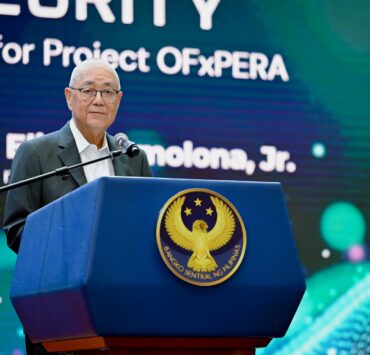Caring for the next generation: Why family care shouldn’t be forced

Senate Bill No. 396, filed by Sen. Panfilo ”Ping” Lacson, is an ideal law that punishes the culprits, whether parents or children, who transgress the law or abandon their social and filial obligations. However, the mess this law could create would be humongous. Can we imagine families filing cases against each other, clogging the cases in our courts? Even right now, we have cases brought to public attention by media programs, ventilating cases of being abandoned by their parents and vice versa, or abuses by spouses. We do not need more family divisions and conflicts clogging our courts. Grown-up children can take care of themselves better than the abandoned aging parents. And for abandoned parents, it is not all about monetary support. We need no further division in the Filipino family.
South Korea, a tiger economy and the only Asian country in the Top 10 of high suicide rates, has 28.6 index, occurring mostly among the elderly. Researchers attributed this high rate to depression and the insecurity of not being taken care of by their children. The Mapo Bridge, which traverses the mystic Han River, has become a suicide bridge, where many jump off. It is not simply monetary, but deeper family care that money cannot buy.
I would suggest, however, a proactive solution in which people working in government and private sectors are deducted a percentage of their salaries to go into a special fund, which we might call the filial reserve fund, to be administered by the GSIS and the SSS. We usually withhold certain amounts from the employed for special government purposes and public service. We might as well provide, say, a 2 to 5 percent withholding provision to this meaningful reserve welfare fund that will be used to build homes/villages and monetary support for the aged who have no means of support.
Parenthood is a solemn responsibility in bringing up children properly with family values and being accountable enough to bear the number of children that they can support; and that, while working, they provide for their own retirement future by saving a part of what they earn. A minimum wage earner can scrimp on unnecessary expenses, no matter how small, by disciplined saving of a small part of wages earned, for contingencies and for their future in retirement. Couldn’t a minimum wage earner set aside P30 a day (5 percent of daily wage), and save P10,950 a year, or P500,000 with 45 years of service?
The Filipino family mantra should be: Parents are to take care of their children and their future; the children are to be responsible in turn, for their next generation. In loving gratitude, not by the force of law, children can look back in gratitude to their parents and show such care and love that money cannot buy.
MARVEL K. TAN, CPA,
captbeloytan@gmail.com

















Good, bad contractors